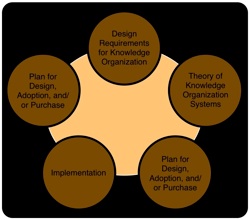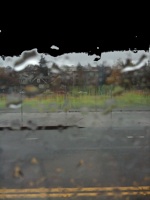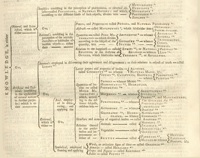Classes


LIS 530 - Organization of Information and Resources
Description:

LIS 536 - Indexing and Abstracting
Description:

LIS 539 - Social Tagging: Technology of Indexing, Personal Bibliography, or Information Criticism?
Rationale and Description:
As more and more taggers use social tagging systems, LIS has to ask how this development relates to its body of knowledge on design and evaluation of systems. Systems like Delicious, Connotea, and Flickr are built around tags others, like Amazon.com and LibraryThing have incorporated social tagging. The questions that surface are: (1) what is the relationship between tagging and indexing as we currently conceptualize it? (2) What is the relationship between tagging and the expression of one's identity, story-telling, and public self; and (3) is social tagging a form of critique of indexing systems specifically and knowledge organization systems in general?

Using contemporary scholarship on social tagging, indexing theory, new bibliography, and information criticism, this class will address these questions and ask students to offer their clearly articulated and well substantiated views on how LIS can interface with this emergent ubiquitous phenomenon. Students will participate in discussions and write three response essays to the above questions. In order to do this students will have to understand how social tagging works and how it relates to our base of knowledge in Library and Information Science. From this experience we will cultivate skills that allow future thinkers in the field to respond creatively and thoughtfully on innovations in information systems development.
INSC 538 - Seminar in Information Organization
Description:
Seminar on information organization, focusing on any area of information organization, including, classification theory, metadata, document theory, information organization in information systems; social and political aspects of classification, controlled vocabularies, and cataloging history.
2007:
This seminar looks at types of information organization frameworks (e.g., bibliographic classification, ontology engineering, social tagging, and the like) in order to identify what makes these similar and distinct. Each functions as a type of access and description structure, expert regimes of practice, and discourse, but what characteristics of each are unique and which among them are common? In order to make this comparison, students will look at literature and examples of frameworks, dissect, analyze, and construct statements that constitute the basis for a typology of these frameworks and the similarities and differences that obtain between them.
2009:

LIS 535 / INSC 535 - Classification Theory
Description:

LIS 600 - Independent Study 2009-2010, Summer
Description:
The San Francisco Zen Center (SFZC) has generously provided 3 spots for an LIS 600 Independent Study opportunity for the Summer of 2010.

Other opportunities available to LIS students in the Bay area include, but are not limited to, visits to the Prelinger Library, Asian Art Museum, UC Berkley’s collections, and the History of Computing Museum to see the newly created replica of the Babbage Differential Engine.
At this time (December 2009), we are planning for a one-month stay at the Zen Center, tentatively scheduled for the month of August 2010. However, this is subject to change. We are currently working out the schedule. It will be finalized during UW’s Winter Term 2010.
Students interested in experiencing Zen Buddhist community life, project management, and an interest in manuscripts and records are encouraged to apply.
To apply, send a 1 page cover letter addressing: (1) your acknowledgement of the time commitment and expressing a commitment to participate in the Zen Buddhist community schedule, (2) qualifications and interest in manuscripts, documents, and records in a not-for-profit setting, (3) any relevant coursework.
LIS 537 - Construction of Indexing Languages
Description:

INFX 571 - Metadata Research Seminar
Description:

Fall 2011: Video Game Metadata
Winter 2012a: Museum Information Systems
Winter 2012b: Wikipedia Category System
INSC 501 - Theoretical Foundations for Information Science
Description:
In-depth exploration of the philosophical, theoretical, methodological, and historical foundation of information science and the study of information.
